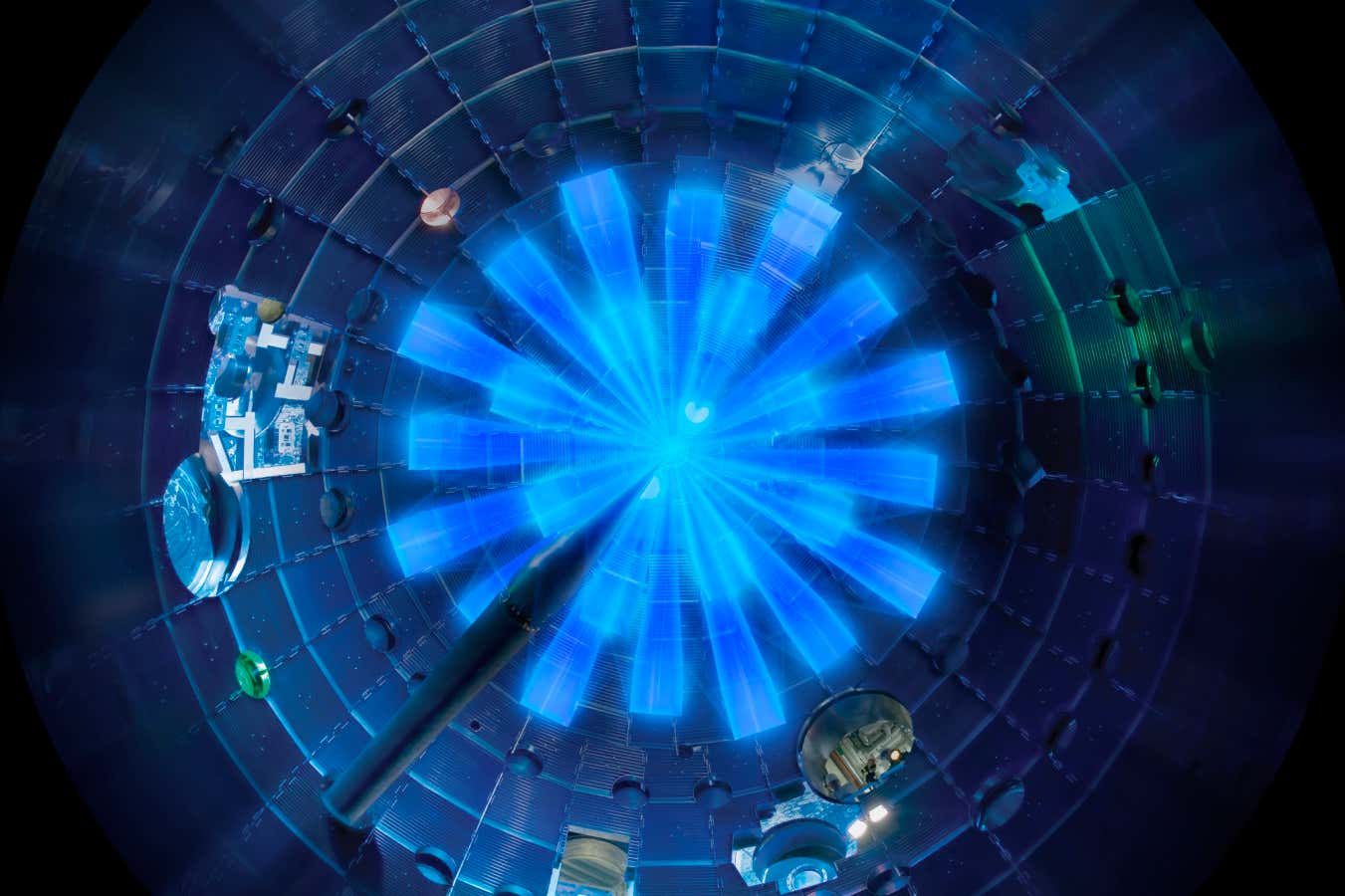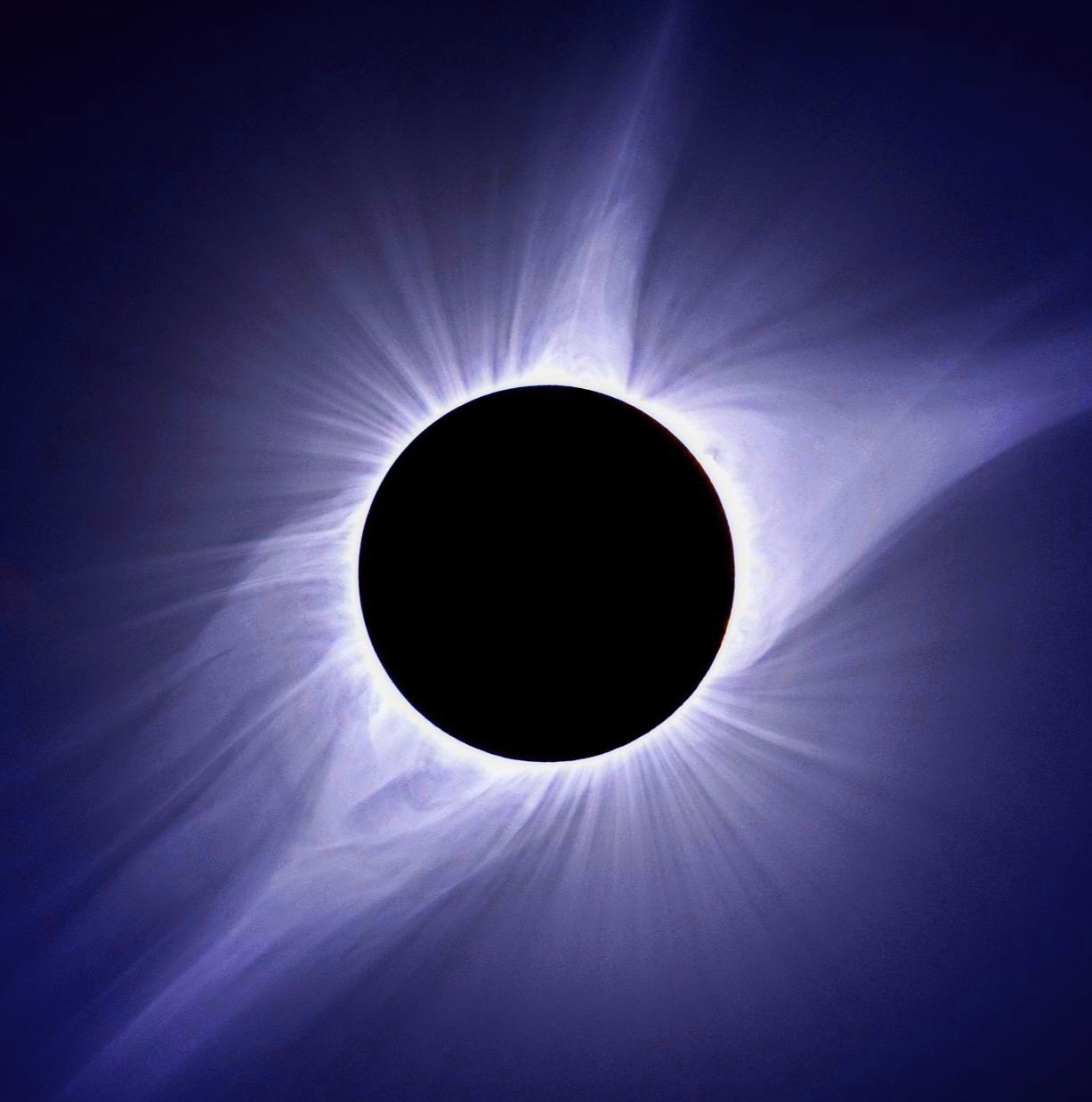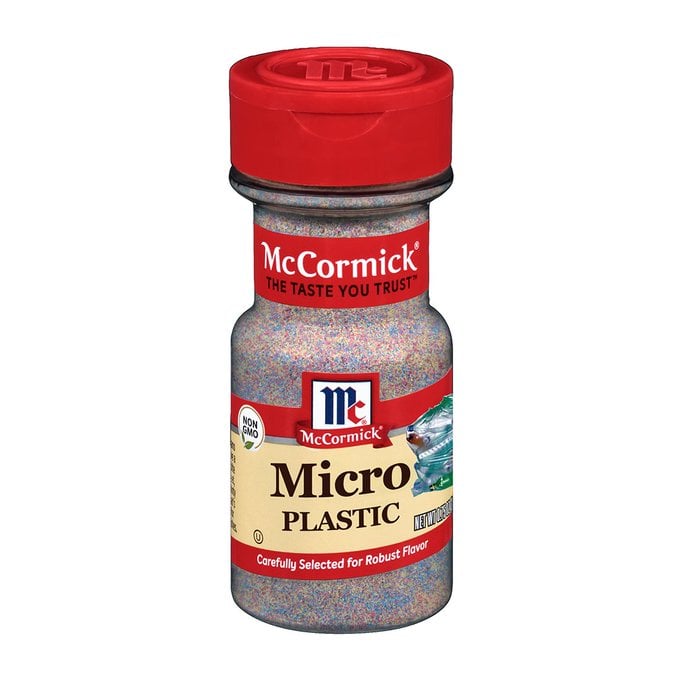Fusion reactor SLAMS surprised scientists with it’s INCREDIBLE output
You’ll never believe what they do next!
What happens in the reaction at the 69th microsecond will shock you!
Fusion engine stuns EV industry!
With this weird little device you can do that at home I’m 90 seconds!
No, really, you can.
The end 😂😂😂
Scientists RIP stubborn atoms for bad faith energy negotiation policy.
Firstly, the energy output falls far short of what would be needed for a commercial reactor, barely creating enough to heat a bath. Worse than that, the ratio is calculated using the lasers’ output, but to create that 2.1 megajoules of energy, the lasers draw 500 trillion watts, which is more power than the output of the entire US national grid. So these experiments break even in a very narrow sense of the term.
It’s so refreshing to see an article at least mention the way these tests are measured are based on the energy just in the laser itself and not the total energy used.
I agree it’s good that the article is not hyping up the idea that the world will now definitely be saved by fusion and so we can all therefore go on consuming all the energy we want.
There are still some sloppy things about the article that disappoint me though…
-
They seem to be implying that 500 TW is obviously much larger than 2.1 MJ… but without knowing how long the 500 TW is required for, this comparison is meaningless.
-
They imply that using more power than available from the grid is infeasible, but it evidently isn’t as they’ve done it multiple times - presumably by charging up local energy storage and releasing it quickly. Scaling this up is obviously a challenge though.
-
The weird mix of metric prefixes (mega) and standard numbers (trillions) in a single sentence is a bit triggering - that might just be me though.
Electricity stuff is funny because it combines metric and imperial units sometimes to make bastard measurements
Huh? Whatchu talkin bout Willis?
Watt is a Joule per second
Volts, Amps, kWh, MJ… These are all metric.
Sssch don’t tell the Americans or they will try to wrangle in BTU in nuclear power plants
WE INVENTED IT AND BUH GAWD, WE WILL MEASURE IT IN MURICA UNITS!
Ignore how nonsensical BTUs are: Gonna shove energy and weight into a single measurement and it changes based on the initial temperature of the water.
Or HVAC uses tons of ice needed to cool something. Euroguys probably don’t have air conditioners, just that tilt window technology.
I do like the obscure AWG scale especially 0000
Y’all do know what BTU stands for, right?
British Thermal Units. It’s the energy needed to heat 1 lb of water 1 degree F.
The bad part is that no one bothered to set the starting temp of the water so there’s 5 separate standards for what the hell a BTU actually is, which makes it a really bad standard.
In a number of instances where there is not a standard in place already it is not uncommon to see metric measurements mixed with imperial or US customary measurements.
I’m not in any way shape or form claiming that ALL of it is mixed.
However what does actually happen is the a unit of measure might be mixed with a customary one and then that becomes the defacto measurement, you may see wire resistance shown as a mix of Ohms/1000ft.
I am not getting into an argument about the merits of metric, I’m on board, I am with you. That doesn’t mean there aren’t some silly oddballs.
Is their an imperial equivalent to ohm?
It might be the case that imperial resistance is ohm the same as metric. Metric uses ohm as it’s constituent with base units of metric, but imperial doesn’t abide by rules like that.
If you had to make a imperial equivalent to resistance, it would be a fraction of the resistance of the monarchs finger.
There’s no non metric electrical units except ohms/1000 ft or cross section dimensions, and AWG (and MCM kilo circular mils kcmils) versus mm^2
Why US uses awg with reverse scale instead of diameter is insane
formula: D(AWG) = 0.005·92^((36-AWG)/39) inch
Yeah electricity is weird because Americans use metric for it. And it’s that way because metric predates it
Fun fact: While metric predates our full understanding of electricity, our understanding of electricity played a key role in the definition of the SI units.
As I understand it, the reason the SI unit for mass is kg not g - making it an outlier to my mind - is so that electical engineers could keep volts and amperes as convenient numbers.
Long read: https://arxiv.org/abs/1512.07306
-
Still, from an acorn grows a massive tree.
Exactly. These tests aren’t meant to create a practical solution, but to provide knowledge and insight that a) it is possible and b) exactly what is necessary to make it happen, at a physical level. Before this, it (more out than in) was all theory, but now we’re got some hard data to work with.
That’s a big step we’ve been chasing for a long, long time.
That, is not an illusion, Master Oogway.
At some point we’ll be able to say: …and thus, humanity created its first star.
…and accidentally incinerated its home world, as the supply dependant lunar colony could only look on in horror.
✨The End✨
I know you’re joking, but nuclear fusion is inherently safe because if it breaks there is no way to sustain a chain reaction. And is only creates mildly radioactive byproducts. So you could blow it up and it wouldn’t seriously contaminate the area.
Not only are the radioactive byproducts not that dangerous (everything is relative of course). But also they have incredibly short half lives so they go away long before the firefighters turned up.
Technically fission has a similar physical barrier to infinite meltdown. Once the water leaves the core, the reaction stops. It was called China Syndrome, and we wouldn’t have worried about it at all, had the physicist that thought it up been a bit more competent with his math skills. Unfortunately, there are plenty of other ways that the reactors that we currently use can catastrophically fail.
Nah, the Earth doesn’t have enough mass to become a star. If it did, it would already be one.
Removed by mod
Everything’s hydrogen if split enough ¯\_(ツ)_/¯
When they do they should come up with some original quote.
“The power of the sun in the palm of my hand”, something like that.
At least they won’t be in danger of falling flat on the ground, halfway through their Big Words, due to muscle atrophy, the way every single other “first person on ______” is gonna have
“That’s one small trip and fall for a human, one giant faceplant for mankind.”
And directly started demanding money to use some of it.
We already got plenty of nuclear fusion output with no energy input on our part. But folks dont want solar panels
What is with peoples insistence that we only ever use one kind of power generation?
Wind, solar, fusion, fission, hydro, they all have their uses. Why limit yourself like some kind of console fanboy?
That’s fair. Im big solar fanboy but if more people were fusion researchers the world wouldnt be a worse place.
Fusion is self sustained and highly scalable.
If it was practical we wouldn’t need the other forms, except for places not serviced by electrical grids.
Fission takes a long time to build and finance. It hasn’t been invested enough in. We need more green energy to replace fossil fuels faster than governments can get fusion plants up. That’s why wind, solar and hydro are and should be the preference.
Hydro needs the right geography. Solar and wind need the right local weather. Solar great in a California desert, but terrible in Scotland where wind and hydro are very effective.
There some cases where a specific technology is the best and clearest option. But when fission becomes reliable, it will cover the vast majority of use cases in the highly Industrialised nations. Everything else will be niche.
Well as soon as I can get a fission reactor in my house I’ll give up on energy independence then.
*minus the energy needed to make, maintain, and replace solar panels.
I support more solar installations, just calling out it isn’t free power.
As more solar is installed, the less power input we need to provide. There will be a point where all solar power required to make a solar panel will be produced by solar panels
As more solar panels are installed, more material and maintenance are required. They deteriorate over time, and require large physical areas.
I guess at that point, each panel needs to be extremely efficient to limit the space, extremely durable, made of cheap materials, easily recyclable into another panel.
Right so
No energy input on our part
Is clearly false
I give the comment a pass because it’s pretty obvious hyperbole
True, but that’s not reliable source of energy though, specially during short and cloudy winter days when it’s most needed. Look what happened in Germany and how they became on if the biggest European polluters. The key ingredient missing is energy storage. Once that’s solved, solar panels would become much more useful.
We have all the technology for energy storage we need, it just needs to be built. Theres gravity storage like pumped hydro, pressure storage, thermal storage, flywheels.
Well, no. Sadly we don’t. At least not in the range needed. All of these require either specific geographic relief, something really huge, too expensive or combination. Perhaps the most promising is the green hydrogen, but then again, we have yet to see it at such scale. I’d love to be wrong, though.
something really huge
yeah, we use a lot of energy, absolutely every form of energy production we have involves really huge things. Massive mines, dams, pipelines, oil rigs, nuclear cooling towers, fossil fuel power plants, oil tankers. They just have to be built. we can excavate dams, build solid weight lifting facilities, molten salt storage, make arrays of flywheels. There’s a ton of answers to energy storage already, they dont involve resources with any kind of scarcity, they just have to be built.
We could massively subsidize home battery storage and this wouldn’t be an issue at all. Microgrids are the future anyway. The only reason why storage is an issue now is because it needs to be centralized. Once we get away from that tons of new possibilities open up.
Home batteries are expensive and take a lot of place. Also they won’t last more than a day. Imagine winter time with short cloudy days. Realistically you need at least a month worth of energy storage and even then you need sun to recharge it. They would distribute energy consumption better though by charging during night.
Or bombs. They have fusion versions of those with a great deal more output than input but they’re not really fond of those either.
Solartards don’t realise that the problem with solar is storage and sun availability. It’s a fantastic idea on paper but unless you’re in an tropical country, good luck surviving winters.
WHAT? This is completely new information that nobody has filled journals with papers working out solutions.
we’ve had grid scale storage for a long time now. storing energy for things like cars needed new technology for weight concerns, but for electrical utilities? You lift a weight upwards with an electric motor during peak times, and let the weight down to spin a generator when you need it. It’s been in application with pumped hydro storage for a while.
There are plausible technical designs to make huge batteries out of dirt / dirt cheap materials (e.g. liquid metal battery but there are others). I wonder how that compares to building other power plants. The problem is that humanity is just too stupid to live.
Maybe one day we will produce a civilization capable of using technology as it comes out instead of one that decided to call it quits decades ago. Oh sure we got cellphones but we are still burning coal. Because nuclear is scary.
I think nuclear energy is a great idea in theory, but I have absolutely zero trust in companies handling nuclear waste responsibly. It’s not like they have a great track record.
That being said, pretty excited about this if it’s as safe as they say.
You have every right to not trust companies, I don’t either. Good thing we have multiple government regulators and multiple non-profit engineering/standards boards also involved.
That’s why there were no incidents in Japan a decade ago. Especially not after multiple reports of potential danger 🤷♂️.
I have the same reserves as the person you commented on. “We” may have great agencies working to prevent issues, but it’s not the case everywhere in the world. And if you want to use fission as a solution for climate change, you need to have every developing country to use it too, whatever the stability of the region.
Just look at Ukraine where the safety of one their reactor is on the line because of the war, and the mines Russia put all over. Chernobyl 2.0 if things go wrong :(
That’s why there were no incidents in Japan a decade ago. Especially not after multiple reports of potential danger 🤷♂️.
Oh yes let’s do this. Thousands of plants across the world operating for multiple decades and you mention something the exposed people to less radiation than you get on a 4 hour flight. Omg something isn’t perfect! Wow we should give you an award.
have the same reserves as the person you commented on. “We” may have great agencies working to prevent issues, but it’s not the case everywhere in the world
Which is why there are international bodies.
And if you want to use fission as a solution for climate change, you need to have every developing country to use it too, whatever the stability of the region.
Citation needed. Please show me multiple peer reviewed studies that back up this claim. There are 190 countries or so please show me how it physically impossible that if each and every single one of them doesn’t have a nuclear reactor themselves climate change can’t be worked on at all, not even slightly.
Just look at Ukraine where the safety of one their reactor is on the line because of the war, and the mines Russia put all over.
Yeah maybe Russia shouldn’t have invaded.
Chernobyl 2.0 if things go wrong :(
No. Very different plant design, but you knew that. Just hoping that I didn’t.
Yeah sure, the Fukushima region is/was thriving and people were happy to live next to a nuclear disaster. The cleanup will take another decade and lots of money. It’s not just about the immediate radiation.
International bodies, like the ones that (afaik) can’t access Iran’s nuclear enrichment plants anymore ? Sure it may be more related to nuke production, and that’s a tangential problem.
Stand off your high horse and your hyperboles. I didn’t say that it was impossible to work on climate change without 190 going nuclear. However it’s ignoring that most pollution comes from developing countries, countries that do not want to sacrifice their development, and would need nuclear or renewable. Guess what is cheaper and safer?
For Ukraine, yeah, but did you or I have a say in this war ? Do we have a say on Russia preventing 90% of workers that know the plant to go to work ? No such risk with renewables (except maybe hydro, as shown by Russia too).
Did I say that the plant would explode exactly like Chernobyl? No. The plant can be a disaster if one or multiple missiles hit it, with the mines and explosives reported as being set everywhere. Could the plant resist such impacts ? Probably, maybe. Do I care to find out ? No thanks.
Don’t bother to respond if you are to take this discussion in bad faith. We can discuss things like adults without being hurt by the other side having a different opinion.
More gish gallop from the coal lobby.
the Fukushima region is/was thriving and people were happy to live next to a nuclear disaster. The cleanup will take another decade and lots of money.
I have worked on a Superfund site that is going to extend past 100 years, but your ten years is soooo impressive to me.
International bodies, like the ones that (afaik) can’t access Iran’s nuclear enrichment plants anymore ?
Yeah organized religion is shit not sure what you want from me. Maybe we can ban religion and ban your coal employers.
Sure it may be more related to nuke production, and that’s a tangential problem.
But you sure as hell brought it up.
Stand off your high horse and your hyperboles. I didn’t say that it was impossible to work on climate change without 190 going nuclear. However it’s ignoring that most pollution comes from developing countries, countries that do not want to sacrifice their development, and would need nuclear or renewable. Guess what is cheaper and safer?
Don’t lie it is unbecoming of even a lobbyist.
For Ukraine, yeah, but did you or I have a say in this war ? Do we have a say on Russia preventing 90% of workers that know the plant to go to work ? No such risk with renewables (except maybe hydro, as shown by Russia too).
Well it certainly didn’t help that thanks to Big Fossil Fuels Russia has a natural gas stranglehold on Europe. Maybe if stopped listening to coal lobby people on the internet and built nuclear Russia would have backed off.
Did I say that the plant would explode exactly like Chernobyl? No. The plant can be a disaster if one or multiple missiles hit it, with the mines and explosives reported as being set everywhere. Could the plant resist such impacts ? Probably, maybe. Do I care to find out ? No thanks.
Again with the lies from Big Coal
Top kek.
From what I recall of Three Mile Island, I don’t know that I’d put a lot of trust in the NRC.
I see. So because of an incident five decades ago out of hundreds of plants running since the 1950s that resulted in no deaths the entire NRC for all time forever is untrustworthy.
Hey everyone go shut civilization down. The bar has been raised. Did an organization make a mistake that had no victim 51 years ago? This means it is destroyed forever. Only perfect people who act perfectly forever and into the past as far as you can look get to do anything.
Got to love this new world. Where the only thing that is real is our outrage. Can you tell me anything about the NRC? Can you describe their emblem without looking it up? Can you tell me who is running it now? Can you tell me about its organization structure? How about the license renewal process? How about how inspections are even performed? Betting no. But you don’t need to, you have outrage and that replaces data. It is the master play that can never be defeated. As long as you can be upset about something you don’t need to know anything.
There are people who are grandparents who weren’t alive during that incident.
With respect, you are the one that seems outraged. I’m not outraged, just pointing out that government can be just as untrustworthy as corporations and in the case of the NRC, there is some history to justify that.
Government agencies generally should be looked at with critical eyes, as should anyone claiming power over your life.Also, you claimed there were no victims. The fact that no one died in the immediate aftermath of TMI does not mean there were no victims. The surrounding communities were victimized by poor business decisions and poor oversight.
there is some history to justify that.
Emphasis on “some”.
Also, you claimed there were no victims. The fact that no one died in the immediate aftermath of TMI does not mean there were no victims. The surrounding communities were victimized by poor business decisions and poor oversight.
Do you think pedantically going after one word I said will make your pro-coal agenda work?
I just thought it was worth recognizing that there were victims as my point in my original post was regarding the trustworthiness of those that are supposed to be looking out for the people. And I guess I’m not sure where I’ve pushed coal, but you do you, I guess.
Peace and love to you, Zombies
I’m pretty sure Three Mile Island is more of a case study in how safety measures at nuclear plants can work.
Except it took a whistle blower to point out the reckless behavior during the clean-up to prevent a potential catastrophic event when the NRC was all for signing off on the reckless plan. That, plus the poor communication with the surrounding communities did not help the people there feel confident that their safety was being looked after
It’s not been uncontested through out history, and I won’t pretend that I follow the updates closely, but there have been studies suggesting increased cancer rates in the surrounding communities.
Except it took a whistle blower to point out the reckless behavior during the clean-up to prevent a potential catastrophic event when the NRC was all for signing off on the reckless plan.
+50 years ago
Boy, you are just really bothered by this. Why does it being 50years ago matter. Can you explain why we should trust them more today than we should have then?
I bet on the day Three Mile Island had the meltdown, hundreds if not thousands of people died due to emissions from coal power.
The issues with fission are issues with practically. It’s expensive, pretty much. Concerns about meltdowns or waste storage are discussions that need to happen, but they pale in comparison to the damage we already experience every day.
Hopefully small modular reactors will get popular in remote areas or industrial uses, and that will bring down the price to make them a feasible compliment to renewable energy.
I don’t disagree about the harm of coal and I am absolutely hoping fusion works out in the long run. All for clean energy!
I mean no one died and it seems like most studies find few to no significant adverse long term health effects from the event.
There have been studies that suggested increased cancer rates around TMI. I don’t pretend to follow TMI closely enough to know for sure, maybe those studies have been completely debunked. The trouble with cancer is there can be a number of different factors leading to it and isolating one incident as the main driver for cancer years down the line is difficult.
There was also the issue with the way the surrounding communities were being “kept informed” and the fact that a whistle blower and to come forward to halt irresponsible clean up plans that could have caused a catastrophic event.
Really obsessed about this 5 decade long ago event. Btw the cancers studies have been debunked
Sure, I just want to feel confident that said regulations actually have teeth and the punishment can’t just be factored into the cost of doing business.
So, yes, I’m scared. Maybe that’s not rational, but I don’t want to look back in 40 years and find out we were wrong about the longevity of nuclear waste storage, or that the many minor infractions over the years have slowly built up into a real problem. I don’t want to discover that we’ve been outsourcing the most dangerous work to developing countries with less employee and environmental protections than our own. If there’s a viable method that’s inherently safer, I’d feel a little better about it.
Well as long as we are using feelings to determine policy. Instead of you know data
So nationalize them. Problem solved.
Do you trust our current governmental structures to manage something with that much potential for harm when it goes wrong? I sure don’t. Sure, it might go great for a long while, but then you get one far-right administration that wants to cut regulations.
How many nukes does the US have?
I trust them far more than greedy corporations run by greedy billionaires, absolutely. For many reasons, not the least of which is the elimination of the profit motive.
You’re acting like we don’t already have these. This isn’t new and we have tons of prior experience to learn from.
I wish I could be as optimistic as you are.
Lol if only you knew how wrong that statement was.
That’s the dream!
Well, that’s why you put well funded, independent organizations in charge of setting and enforcing the rules around this kind of stuff
And you don’t just give them the power to fine the companies exploiting the reactors, you give them the power to unilaterally decide to shut down the reactors if they deem it necessary
With a rigorous set of ethics and standards so the industry doesn’t end up being overseen by a bunch of retired executives or getting kick-backs.
We’re currently trusting them to deal with all the filth that comes out of fossil fuel based power facilities. There’s a lot of very long lived awful waste that is produced.
It’s kind of a devil-you-know thing, isn’t it?
Like, we’ve seen on a limited scale what can happen when nuclear isn’t handled properly, and then we’ve also seen what kind of catastrophic messes the fossil fuel industry creates with our current fuel sources. It’s not a big leap of imagination to scale up Fukushima and Chernobyl to a global reach comparable to coal and oil.
Our corporations have shown they will cut every corner available - even when heavily regulated - and our governments have shown they are too incompetent to properly enforce the regulations they do out on the books. It shouldn’t be any surprise that people are reluctant to get behind nuclear. Anyone who isn’t is hideously naive.
Because nuclear is scary.
Nuclear isn’t scary. It’s waste, on the other hand, is.
But you know, it’s not like we’ve not had multiple examples of nuclear power plants failing catastrophically and destroying things around them for miles, and for decades/centuries.
Having said that, if they did come out with new technology version of a nuclear power plant that is safe and that with a catastrophic failure does not harm the environment around itself then I would be all for it. I just don’t think the technology is there for that. I hear they’re working on it though.
In other words you want special pleading. All other energy techs are allowed to have problems and produce waste except for one.
All other energy techs are allowed to have problems and produce waste except for one.
The other ones don’t fail catastrophically like nuclear does.
The other ones don’t produce waste that is the worst kind of toxicity for Humanity that lasts for hundred of years.
Solve those problems, and I’ll get on board that train.
The other ones don’t fail catastrophically like nuclear does.

Comparing (some) other forms of energy’s deaths to nuclear is like comparing mosquito bites to shark bites. A sharks kill a lot less people than mosquitoes, but a mosquito bite won’t make the news.
Well, we all die at some point, be it from malaria, nuclear fallout, cancer, car accidents, heart failure, stupidity, etc.
There are more mosquitoes on the planet than they are nuclear reactors, So I’m not sure what you think you’re trying to show with that graph.
The point is a nuclear reactor failing catastrophically, yeah it’s a more rare event than dying from malaria, but we seem to treat malaria treatment better than we do reactor designs and operations, especially when profits are involved.
And a person dying for malaria, doesn’t put a pox of the lands around them for centuries making it unusable to anyone else. The risk versus reward calculation is much different, it’s not strictly just a quantity of deaths issue.
And even if you want to talk just about the odds of failure/death, I’m sure all the dinosaurs scoffed at the idea of being killed by an asteroid, until one fateful day (how’s that for a non-sequitur example!). Or flying by plane is the safest form of travel, unless you’re in a 737 Max, then safety be damned.
Does climate change caused by the coal industry not fall under the “pox of the lands” category?
Does climate change caused by the coal industry not fall under the “pox of the lands” category?
Eventually, yes, but a lot slower. And you can definitely put one as an S tier threat and the other one as an A tier threat.
And as I stated, if we have fusion and solar/battery then we don’t have to worry about that from either of them anymore.
The graph is per terra-watt hour. My point is that watt for watt nuclear is actually one of the safest forms of energy.
Many deaths over a period of time aren’t necessarily better than less deaths in an instant.
My point is that watt for watt nuclear is actually one of the safest forms of energy.
And flying is the safest form of travel, which makes the Boeing 737 Max the Chernobyl of planes I guess.
The point is the chance of failure, even if they haven’t happened in a higher quantity so far, is very high, higher in nuclear power plants as they are currently designed or have been designed in the past, than other forms as you have described or supposedly newer ones that are on the designing boards as we speak. And when they fail, they fail too catastrophically, too horrendous for Humanity to have too many of those.
Just one more time, because I don’t want to keep the conversation up, but I’m not anti-nuclear, just anti-old and current nuclear. Get those new smaller salt based low risk of catastrophic failure easier to operate by humans and handles human errors more gracefully reactors out there and I’ll be just fine with those.
Those problems literally HAVE been solved. You’re talking about a disaster from 50 years ago. Nuclear is quite literally one of the safest forms of energy production we have. And the waste is really not much of an issue. Not only is most of it recycled into new fuel, the entire United States hasn’t even made enough fuel to fill a football field since we started using nuclear power.
Those problems literally HAVE been solved.
And are those designs in production today, or still on the drawing board?
What percentage of reactors today have this new design that you speak of?
the entire United States hasn’t even made enough fuel to fill a football field since we started using nuclear power.
Citation required, because I remember them having to dig out a huge underground storage mine somewhere in the Southwest (nearby Vegas if my recollection is accurate) to handle all the waste that would be generated between all the power station reactors and all the hospitals that use radioactive devices and everything else.
Yes those designs are already in use today. Modern reactors are incredibly safe. The only modern disaster was Fukushima and that didn’t even cause any deaths and was brought on by a tsunami.
And here is your source. And this is for ALL nuclear waste in the world.
The volume of high-level radioactive waste (HLW) produced by the civil nuclear industry is small. The IAEA estimates that 392,000 tonnes of heavy metal (tHM) in the form of used fuel have been discharged since the first nuclear power plants commenced operation. Of this, the agency estimates that 127,000 tHM have been reprocessed. The IAEA estimates that the disposal volumeb of the current solid HLW inventory is approximately 29,000 m3.1 For context, this is a volume roughly equivalent to a three metre tall building covering an area the size of a soccer pitch.
This is a good video to learn more about nuclear power and how many people misunderstand it.
Fair enough, thanks for sharing.
So like I said, the catastrophic failure effects are my primary concern, though I am concerned about dealing with the waste product.
Having said that, that’s still a lot of waste that your documentation is talking about, and it’ll be around for centuries. I don’t think it makes your point as well as you think it does.
Better to have other forms of energy that doesn’t generate that sort of waste, or make sure we have one hell of a foolproof (not verified by biased corporations) of preventing that waste from getting into the environment either accidentally or on purpose/terrorism.
The other ones don’t fail catastrophically like nuclear does.
take a look some excerpts:
December 1952: The Great Smog of London caused by the burning of coal, and to a lesser extent wood, killed 12,000 people within days to months due to inhalation of the smog.[18]
The Vajont Dam in Italy overflew. Filling the reservoir caused geological failure in valley wall, leading to 110 km/h landslide into the lake; water escaped in a wave over the top of dam. Valley had been incorrectly assessed as stable. Several villages were completely wiped out, with an estimated between 1,900 and 2,500 deaths.
as /u/afraid_of_zombies said:
All other energy techs are allowed to have problems and produce waste except for one.
As far as the smog goes that was before catalytic converters and improved laws to reduce smog, and as far as the dam goes yeah you build any dam in a bad place and it’s going to break, it’s kind of actually another metaphor for what I’m talking about, which is nuclear is more risky because it’s more dependent on humans being more perfect to Implement / operate it.
As far as the smog goes that was before catalytic converters and improved laws to reduce smog
Then take into account modern nuclear reactors, as other commenters said. Nuclear is the way to go for safest and cleanest energy of all energy sources we have. Things that are stopping it are coal/oil lobby, nuclear scare and capitalists and politicians scared other countries might make nuclear bomb out of it.
I’d love to have a nuclear powerplant in my country, we are choking here because of coal and coal lobby just makes things worse by supporting energy sources sold as “renewable clean sources” that need batteries to work on and as a fallback, when there is less sun or wind always go back to coal.
Then take into account modern nuclear reactors, as other commenters said.
I definitely will, when they’re in production. I haven’t had anyone tell me that they are yet, just on the drawing book. I’m all for salt based small reactors that are a lot safer to deal with.
The coal industry emits magnitudes more unvetted radiation than any nuclear power plant will in it’s whole lifetime; as in, radiation is undetectable around a modern nuclear plant.
Plus coal and oil extraction has it’s own problems with radiation. Nuclear produces stable, storable waste that if handled and buried correctly will never become an ecological issue.
They’re built to a modern standard where it’s practically foolproof. Fukushima held up to an enormous earthquake followed by several tsunamis; that’s despite the poor operation of the plant.
The damage we would have to cause to compromise and get rid of any nuclear reliance is far more immediate and concerning.
Nuclear isn’t actually as complicated nor unpredictable as you’d think. They’ve solved ways to avoid melt downs such as the fuels being improved, the amount they process at one time, their cooling and the redundancies. The physical design of a modern station takes into account the worst situations that any given amount of fuel can give in a meltdown such as deep wells that are situated under a reactor to melt into. You won’t likely ever see in our lifetimes a station reaching critical meltdown and it not be because a government or private company cut corners.
Scientists are doing this work, they know what they know and they know what they’re doing, it’s not really for everyone to politically involve ourselves with when no one ever does any valid research or basic knowledge of science without fear mongering.
So that’s a wall of text, with all the same standard counter points that is always made, some of which I disagree with, so I’ll just say I’m not anti-nuclear, I’m just anti-nuclear in its current design form.
You give me a design that can protect the environment from catastrophic effects and with a waste product that can be safely handled, and I’ll get on board.
I had read there is some salt based designs kicking around that seem to start going in that direction, but I don’t know if they’ve been moved forward or not.
Fukushima held up to an enormous earthquake followed by several tsunamis; that’s despite the poor operation of the plant.
Actually it wasn’t so much the poor operation of the plant, but the failure of the design of the plant to not take into account that after a major earthquake the elevation of the land that the plant sits on would go down, which makes the wall they put up the protect the plant from the ocean (especially after a tsunami) shorter than it should have been.
Nuclear isn’t actually as complicated nor unpredictable as you’d think.
I’m actually quite informed on the subject.
without fear mongering.
Someone disagreeing with you is not fear-mongering.
Generally when a fact is established it does become the “standard counterpoints” people use.
You personally said “Nuclear waste is scary” - that’s why I said people fearmonger. If you’re informed you’d actually understand it’s a very safe form of waste
Also you said it wasn’t due to poor operation, but then state an example of a plant being poorly operated. If those were obvious and established problems that they already should have been able to account for, then someone dicked it up. Nuclear is only dangerous when it’s irresponsibly used. We already have accounted for the mayor pitfalls. It’s not worth saying it’s dangerous, bad for the environment, or scary in terms of waste.
Nuclear energy isn’t some half theory or some risky experiment, it’s pretty well established and understood at this point.
I also said people in general shouldn’t be so politically involved when they’re not informed, I actually said that because I shared and hoped you would be able to agree on that. I wasn’t demeaning you.
You personally said “Nuclear waste is scary” - that’s why I said people fearmonger.
The point I was trying to make was that the plants operation was one risk, while it’s waste output was a second risk.
That wasn’t fear-mongering, that was stating facts.
But to be blunt, if an area is destroyed because of nuclear waste then that is kind of scary, a land that can’t be lived in anymore (or for a very long time) it’s something right out of a fiction story (Mordor-ish).
Expressing that is not fear mongering, its a real possibility, we see that today around nuclear reactors that have catastrophically failed. We humans rarely ‘salt the Earth’ so we can’t live in a place anymore, it’s anathema to what we believe in.
Nuclear is only dangerous when it’s irresponsibly used.
Which always happens sooner or later because human beings are involved. The current designs can’t cope for humans being humans (especially for those who love profits) and their flaws are exaggerated to catastrophic proportions.
I also said people in general shouldn’t be so politically involved when they’re not informed, I actually said that because I shared and hoped you would be able to agree on that. I wasn’t demeaning you.
Well since you were replying to me directly in an argumentative tone, I could only assume that point was directed at me. And that statement is that I’m commenting uninformed, which is not correct, and hence why I pushed back.
What I do usually to avoid that misunderstanding is that I explicitly state something along the lines of “not you directly, but generally” when I’m trying to make a general comment in response to a specific individual.
I do appreciate you clarifying, and hope that was an honest clarification, and not just trying to avoid the pushback of the criticism that was initially correct.
And finally, I do agree, people should be informed when they comment, but as long as they’re not being obstructive there’s nothing wrong with also just expressing oneself to others, your fears and hopes, without knowing all the facts. This is supposed to be a conversation, and people can learn new facts while the conversation is happening, versus having to know everything before they enter the conversation.
The other ones don’t fail catastrophically like nuclear does.
BP gulf oil spill.
The other ones don’t produce waste that is the worst kind of toxicity for Humanity that lasts for hundred of years.
Fracking, contaminated ground water
BP gulf oil spill.
Fracking, contaminated ground water
I would still argue those are less catastrophic than Chernobyl, Fukushima, Three Mile Island, etc. Their destructive effects disappear a lot quicker than a nuclear catastrophe negative effect would.
Having said that, oil is second worse after nuclear. I’m not advocating for oil.
My hopes are on fusion and solar/battery.
No form of energy generation is 100% perfect.
My hopes are that goalposts don’t keep moving in this thread.
My hopes are that goalposts don’t keep moving in this thread.
Well, then stop moving them. /shrug
I love Kyle Hill/subbed. It’s fair to say though that he’s very pro-nuclear. Not discrediting what he says, just saying he definitely has a certain perspective on it.
And my primary criticism is on the catastrophic failure problem, and while I think the storage problem is a negative as well, I think it’s less so than the catastrophic problem.
And my primary criticism is on the catastrophic failure problem
That’s the weaker argument in your original post. Modern designs are nowhere near as bad as older ones designs (aka soviet, we all know you mean Chernobyl) and even the older non soviet ones aren’t bad at all
Fukushima is nowhere near Chernobyl levels of damage (didn’t destroy things for miles for centuries), and no other major plant failures that I can think of would match “catastrophic failure”
That’s the weaker argument in your original post.
Well I mentioned waste first as I did that as a tongue-in-cheek response, but then I immediately mentioned in the very same comment the catastrophic issue, and my recent comment is just me elaborating on the fact that I gave one more weight than the other. It doesn’t discredit what I’m saying.
Fukushima is nowhere near Chernobyl levels of damage (didn’t destroy things for miles for centuries), and no other major plant failures that I can think of would match “catastrophic failure”
Fukushima exclusion zone is not large enough for you to consider that a catastrophic wide area failure? Really?
Modern designs are nowhere near as bad as older ones designs
I’m already commented on this, but just to quickly repeat myself, there’s a difference between being on the design board and being in existence in production.
Nuclear fusion does make this prospect potentially real. The only thing they emit is neutron radiation, and a mean lifetime of free neutron is 14 minutes 47 seconds.
As per current fission technology, while nuclear waste is real issue, nuclear power is historically one of the most ecological ways to produce power. Catastrophes are now less and less likely, with many lessons learned from Chernobyl and Fukushima - lessons that are now implemented in all reactors around the world.
I live in a city powered by a reactor of the same model there was in Chernobyl, but modified following the incident. I fully trust it.
Catastrophes are now less and less likely, with many lessons learned from Chernobyl and Fukushima
I swear I do not mean this as a disrespect on you, as your comment was well written/said, but I’ve been hearing that kind of phrasing from companies that run power plants that catastrophically fail for many decades now. I’m definitely in a once-bitten twice shy mode at this point.
I’ll leave it at this, I hope you’re right, but I can believe you, or my lying eyes (to quote a comedically philosophical man).
I live in a city powered by a reactor of the same model there was in Chernobyl, but modified following the incident.
I live nearby a nuclear plant (not Chernobyl design) as well, though now all three of its reactors has been decommissioned because of age.
I fully trust it.
You’re not trusting that Chernobyl style design (that’s flawed) you’re trusting it’s operators do not f up and trigger the flaw like they did last time with Chernobyl, and humans are never 100% perfect 24/7. Also, Mother Nature tends to have some input as well.
By “lessons learned” I don’t mean just operators acting differently. The very reactors are built another way, as to physically not allow what happened on either station. It’s not that my city is powered by unaltered Chernobyl reactor - it was modified as to not allow the graphite rods to be dropped so late, and made automatic on a mechanical level.
Fukushima-style disaster is simply not possible in my area, but then again, for reactors that are endangered, measures were taken.
Funnily enough, coal plants waste is infinitely more harmful than nuclear waste because the general public doesn’t see it as scary, so it’s barely regulated.
Funnily enough, coal plants waste is infinitely more harmful than nuclear waste because the general public doesn’t see it as scary, so it’s barely regulated.
Well part of it comes down to The China Syndrome versus the toad in a slowly boiling pot syndrome.
But most would agree coal dust is less harmful to a human body then radioactive dust. Yes, they’re both unhealthy, but one will kill you a lot faster than the other one will. People triage potential danger/harm to themselves on a daily basis.
And just to repeat myself…
My hopes are on fusion and solar/battery.
There already is tech that’s safer and tech for reprocessing the waste. The fact that we haven’t used it speaks volumes. It’s not profitable and never will be. So unless we move energy production back to government owned, it’s not going to happen. So yeah if it’s nuclear waste that lasts millions or billions of years vs spending some money on battery tech to compliment renewables until we get something like fusion tech, yeah, it makes no sense to invest in dirty energy.
If companies can’t be trusted to dispose of coal waste properly, what’s the likelihood they’ll dispose of nuclear waste properly? And reactors that don’t produce dangerous waste, don’t produce enough energy to be worth the cost unless you add the cost of proper disposal of the waste. And since they don’t have to do that, they just store it in temporary storage pools indefinitely, the cost is much cheaper to stick with current tech. So fission will never be safe.
I don’t think companies can do that actually. It is very regulated area. Also I think there is a lot of nuclear scare going on. Nuclear is not at all dangerous as it most people think, it just sounds scary.
At present we have oil and coal companies that are responsible for a lot of deaths and burning the planet. Nuclear is in no way near ammount of damage coal and oil are making right now. So even with nuclear accidents(sounds scary yea) it’s better than coal and oil.
If you think companies care, you haven’t been paying attention. Nuclear waste will continue to pile up and will exist until the Earth is gone. You think we’ll store it safely that long? Keep replacing the containers. Protect it from natural disasters or wars. There is not safe place to put it that won’t eventually end up in the ground water and eventually evaporate and become airborne except deep inside the earth and we don’t have the tech and even if we did it would be way more expensive than just investing in new battery tech and renewables.
I don’t think companies care, I said > I don’t think companies can do that actually. It is very regulated area.
What I’m arguing for in favor of nuclear power sources is that is cleanest source of energy we have from all and least deadly from all. But the reasons we can’t have it on the entire world scale are in short, capitalism. Politics + oil/coal lobby.
It is oddly enough easier to store nuclear waste since it is very easy to contain. Coal waste is nearly impossible to do that. No matter how hot you burn or how much you scrub or what tricks you play with syngas/distillate you are still going to end up with CO2 in air.
But nuclear waste will be dangerous longer than any container could possibly survive. Plutonium 239 has a halflife of 24,000 years. Some uranium isotopes are as much as 4.5 billion years. And that’s half-life, not how long it will take to be not dangerous. That’s one reason Yucca Mountain was never completed and the US has zero permanent storage facilities. Eventually it WILL get into the ground water and it will be extremely difficult to clean up, if not impossible, before it contaminates a large area and possibly becomes airborne with evaporation. One earthquake, one change in the water tables that puts water in direct contact with the outside of the pools. One flood. One bomb. Maybe not in our lifetime, but it is inevitable. And if we end up with more power plants and acres and acres of temporary storage pools that will never find a place to put it, it’s going to be really bad. We can’t even get enough money to remove lead pipes or asbestos from most homes. How will we store something that will be dangerous until the sun goes nova.
I’m not saying to stick with coal. I’m saying why invest in using a dangerous energy source when renewables are plentiful? We just need better batteries to store the energy and release it more evenly.
We’ll probably be able to harvest solar power from space then beam it to Earth in a practical way first, than nuclear fusion becomes practical.
There is a very efficient way to beam solar power from space. It is called light.
It’s not efficient, a huge amount of it gets diffused or absorbed
It doesn’t need to be efficient. Capture all the light that hits earth for 5 minutes and that’s the world energy demand for a year.
How would you store it though?
solar george
Solar Robert
Stéphane Robert
Usually In plants and algae.
It’s not efficient, a huge amount of it gets diffused or absorbed
The amount that’s left over though is more than enough, especially with today panels which only convert a very small percentage of that remaining energy.
As the panels improve even more they’ll be a very large energy surplus, even with how much solar light actually gets through the atmosphere.
Wow, you’re right! We should just build a Dyson sphere around the sun. 100% efficiency achieved. What could possibly go wrong?
Where did I say that?
Did you understand the person you respond to as saying its inefficient because the sun shines in other directions than the array proposed?
I’m pretty sure the person talked specifically about the beam from the array to earth being inefficient.I was joking, but apparently nobody picked up on my snarky sarcasm. Disregard.
The nice thing about space is that there isn’t any weather up there to make the solar panels dirty etc. There’s also a lot of space, which solar panels need a lot of.
How would you move the power down to earth?
Microwave transmission is what’s usually said, then someone says anything in the beam’s path will get zapped, then it’s pointed out the energy density isn’t that high. Just wanted to shortcut that for ya
But what if I want to zap anything in the beam’s path?
Then a meddlesome British agent will interfere.
Well at least I still have my cat.
And my moon laser
Long cable
We need to make sure we knot it at the joins so it doesn’t get accidentally disconnected.
Or just charge up car batteries and drop them.
How would you move the power down to earth?
Last time I read up on it it was via converting the energy into microwaves and beaming it down.
I think masers (microwave lasers) are the new theory for achieving this, previously it was beaming microwave down much like your microwave oven beams your food.
Funny thing is, no matter how you arrange to do that it becomes a de-facto death ray. Stick a terawatt of solar panels in space, use the power to shine a laser/maser down to earth, then build a station to turn the laser power back to electricity? Great, until some hacker figures out how to control where the laser is pointed. Then you get Dr. Evil holding the world for ransom.
Nah it’s not really bad at all:
The use of microwave transmission of power has been the most controversial issue in considering any SPS design. At the Earth’s surface, a suggested microwave beam would have a maximum intensity at its center, of 23 mW/cm2 (less than 1/4 the solar irradiation constant), and an intensity of less than 1 mW/cm2 outside the rectenna fenceline (the receiver’s perimeter). These compare with current United States Occupational Safety and Health Act (OSHA) workplace exposure limits for microwaves, which are 10 mW/cm2,[original research?] - the limit itself being expressed in voluntary terms and ruled unenforceable for Federal OSHA enforcement purposes.[citation needed] A beam of this intensity is therefore at its center, of a similar magnitude to current safe workplace levels, even for long term or indefinite exposure.
https://en.wikipedia.org/wiki/Space-based_solar_power?wprov=sfla1
Lasers
The nice thing about space is that there isn’t any weather up there to make the solar panels dirty etc.
There’s a lot of junk though can that can damage those panels.
Space Lane cleaner was going to become a thing at some point anyway…
And we can position a bunch over the poles to help stave off climate change.
The poles aren’t really the place that need that the most.
You wouldn’t think so but them staying super cold helps stabilize a large chunk of our climate. Also throwing shade on arable land isn’t great for food production.
They’re already really reflective and don’t get much light.
They’re losing reflectiveness as they lose ice and it’s one of the major drivers of climate change.
We dont need to collect it in space, just direct more of it to certain ground based collectors?
no stop
I’m not sure what comment to reply to, but I feel obligated to remind people that the sun is a fusion reaction.
solar powergravity confinement fusion
What?
Basically, the idea is to build orbital solar farms (where is always sunny), then beam the energy produced back to the ground with microwave transmitters and ground recievers. It’s technically feasible, unlike fusion we have all the technology needed to do it right now. However, it’s cost and resource prohibitive. The US government studied building such a system in the 1970-80’s after the energy crisis. We could do it, but building it would take a generation to get running and about double the US’s current military annual budget. Launch costs are coming down since then, but the industrialization of space and the moon will take generations and would need to be an international effort to have any chance of success.
You know, for a bunch of people who crave power, politicians sure don’t seem too keen on harnessing it.
Wait… Beam solar energy from space? That’s what the sun does?
We’ll probably be able to harvest solar power from space then beam it to Earth in a practical way first, than nuclear fusion becomes practical.
You mean solar panels?
Awesome put a solar farm next to a nuclear fusion plant
I believe the general principal is giving such a device “seed energy” to get it started, then just feeding the power it produces back into itself. The only time you’d ever need that solar farm is to get it started.
You could also pump that energy into other fusion reactors to get “unlimited energy” so to speak.
deleted by creator
Why would we want to get rid of fusion reactors? We literally have zero, and are working toward them being viable for general use.
I deleted the comment 3 seconds after it was posted, funny thing that you are still seeing it
8h later, I’m still seeing it too. Looks like the delete may not have either taken or may not have synced.
Deleted for me so probably an instance thing
Maybe I should start building the habit of checking what I wrote before I post instead of after
That’s not how nuclear power works
deleted by creator
here you go - you can archive.is to bypass paywalls
There was something about access to scientific articles being less accessible than ever before…and it was paywalled.
nice to see more progress.
we need this now more than ever.
I thought because of the law of conservation of energy you couldn’t get more energy out of something you put in.
I’m getting troll vibes, but I’ll bite lol. Fusion reactions are the exception since you’re turning some mass into energy according to:
E = mc^2
There’s many quality videos on YouTube that can provide a better explanation than I ever could.
They’re not an exception to conservation of energy, it’s just that matter is energy in another form. Fusion reactors just harness that energy.
True, thanks for the clarification!
No worries 👍
You can think of the material being fused as fuel. More energy is produced by burning the fuel than in the spark it took to ignite it.
That doesn’t include the change in mass tho
I hope it is not too late for the dawn of this new technology
If there was a working lab design with constant, net positive output announced tomorrow, then it would take ten years before we saw a commercialized version.
Still worth pursuing, but it’s not going to be our savior.
Why are so many people talking about nuclear fission waste here?
Is it scalable?
It’s the NIF. It’s a hydrogen bomb simulator, it’s not intended to become a power production mechanism. Roughly 0% of their budget involves researching how to turn single fusion explosions at most every few hours into continuous power output.
Scales great for getting around nuclear test ban treaties though, much quicker to retest than blowing up Pacific islands.
That sounds like we just gave a bunch of nerds a videogame where they get to throw nukes at random scenery and then claim they’re doing science by writing down the results.
Let me ask as an informal poll, how many of you here were all into Elon Musk;s Hyperloop as a sure thing back when he first introduced it?
You seem to be implying that fusion is a gimmick of an idea by comparing it to Hyperloop which was nothing but that.
Fusion is a mechanism which has been providing humanity with energy from the first moments in the form of the sun. It’s a well known functional form of energy generation. The struggle isn’t whether or not it could possibly work, but just to make it practical enough to make it work.
This isn’t even necessarily about a single company promising that they have an idea that may work, this is an example of it functioning in some capacity.
Your comparison is simply arbitrary.
I am implying no such thing. I even explained why I brought up the Hyperloop. Maybe you missed the comment?
I didn’t miss it, I just didn’t search through your comment history to find your own arguments for you. Consider editing the actual top level comment if you want to use these arguments without retyping them.
Not my job to retype, your job to read if you want.
Lol what? This is a crazy take. I’m not reading you’re comment history to make sense of a single comment
It’s not my job to do either of those things. It may have been in your interest to make a comprehensible point though.
What in tarnation? You literally did no such thing in this thread. You expect people to go find your comments?
By gosh! Golly gee willikers. I guess I forgot to make this comment right here. Let me go back right quick and make it now.
While you’re at it, figure out how a thread works. And maybe tack on some social awareness.
I think it won’t be in our lifetimes, if ever. Its a cool idea though
































